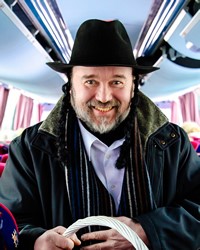Jewish, Russian in Canada

Photo Source:
Copyrighted © 2026
Dimaris - Shutterstock All rights reserved. Used with permission |
|